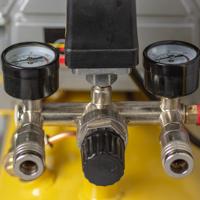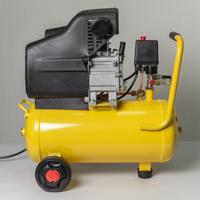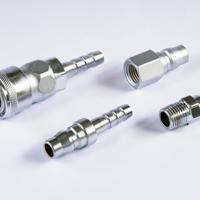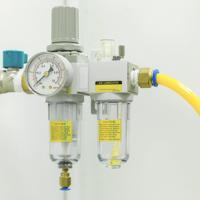Air compressors play a vital role in many aspects of life, particularly in the world of pneumatic power tools. If you’ve ever spent time browsing through air compressors, you might have noticed there are two distinct categories: oil-free and oil-lubricated compressors. Choosing between them can sometimes feel overwhelming, but understanding the fundamental differences can guide you to a more informed decision. Let’s delve into what sets these two types of air compressors apart.
Oil-Free Air Compressors
Oil-free air compressors are designed to require less maintenance, which makes them a convenient choice for many users. These compressors typically operate by using a Teflon coating inside the cylinder, which eliminates the need for additional lubrication. Here’s what you can expect from an oil-free compressor:
- Low Maintenance: One of the key benefits of oil-free air compressors is their low-maintenance nature. There’s no need for regular oil changes, which means less hassle for users. For more information on maintaining your air compressor, see our Air Compressor Maintenance Guide.
- Light and Portable: Without the added weight of oil, these machines are generally more compact and easier to move around. This makes them ideal for smaller workshops or when you need a portable air compressor.
- Environmentally Friendly: By reducing the use of oil, oil-free compressors offer a cleaner option that minimizes potential environmental hazards.
For instance, professionals working in the food industry or medical fields often opt for oil-free compressors since these environments require clean air to prevent contamination.
Oil-Lubricated Air Compressors
Unlike their oil-free counterparts, oil-lubricated air compressors rely on oil to keep their components running smoothly. These compressors come with their own set of characteristics:
- Durability: Oil-lubricated compressors are built to last longer due to the lubrication, which reduces wear and tear on their internal components.
- Quieter Operation: The lubrication also contributes to less noise, making these compressors a preferable choice in settings where noise reduction is appreciated.
- Higher Power Output: Generally, oil-lubricated compressors can handle more demanding jobs and are often preferred for heavy-duty industrial tasks or continuous use.
Given these attributes, they’re often found in environments where rugged durability is critical, such as construction sites or large manufacturing plants.
Key Considerations When Choosing Air Compressors
When deciding which type to choose, consider the following factors:
- Usage Requirements: Determine if your primary focus is on portability and low maintenance, or if you require a heavy-duty machine for continual use. If you need a heavy-duty machine, you might want to check out our selection of Air Compressors.
- Work Environment: Evaluate the environment in which you plan to use the compressor. For instance, clean industries may benefit more from oil-free options, whereas large industrial applications might thrive with oil-lubricated ones.
- Budget Constraints: While initially inexpensive, oil-free compressors may need more frequent replacements. On the flip side, oil-lubricated compressors require periodic oil changes, posing long-term operational costs.
For those who want deeper insights into these types of compressors, this air compressor buying guide offers an invaluable perspective.
While there’s no one-size-fits-all solution, understanding these foundational differences helps you choose an air compressor that aligns with your aspirations and operational needs. Experimenting with different types often leads to finding the one that best meets your expectations.



